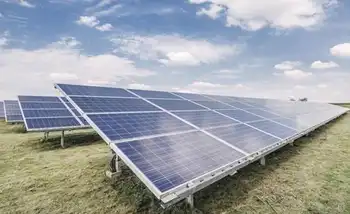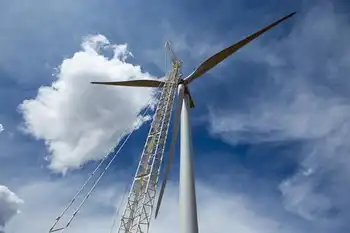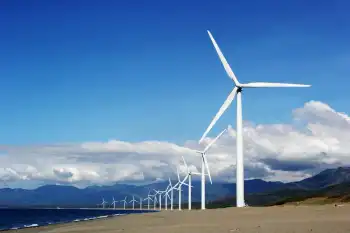Cameco takes hit as uranium sales fall
CIGAR LAKE, SASKATCHEWAN - Lower earnings in uranium, fuel and electricity led to a 30 per cent drop in second quarter earnings for Cameco Corp.
The company reported net earnings of $150 million, or 44 cents per share, down from $205 million (58 cents per share) for the same period in 2007.
Earnings per share were higher than analysts expected, and Cameco's stock price recovered from a fall of 43 cents, to $33.32. Revenues were $620 million, down from $725 million in the 2007 quarter.
"Since Cameco's quarterly results vary significantly, comparing today's results to our record second quarter last year is not a good indicator of future performance," said Jerry Grandey, Cameco's president and CEO, in the second quarter report.
"We will continue to benefit from our uranium contracting strategy, which will provide upside benefit from rising market prices and protection should prices fall."
Lower uranium sales volumes offset higher realized selling prices, the company said. By comparison, uranium deliveries were unusually high in the second quarter of 2007, making up 35 per cent of last year's total.
The average realized price was up 27 per cent to $43.84 US per pound, from $30.87 US last year.
To the end of June, Cameco had mined 8.9 million pounds of uranium, down from 10.1 million pounds for the same six months of 2007. Cameco plans to mine 19.6 million pounds in 2008, down from a projected 20.6 million.
In a conference call with analysts and media, questions were wide-ranging, but many were asked about Cigar Lake. Cameco was forced to cease remediation work at that property recently when the mine shaft began to take on a substantial amount of water. The mine had originally flooded in 2006.
"While the event at Cigar Lake has set us back, we have made significant progress toward our vision to be a leading nuclear energy company in several other areas since the first quarter," Grandey said.
He also added that Cameco has completed the acquisition of the Kintyre deposit in Western Australia, which offers the potential for low-cost production and further diversifies the company's portfolio.
Related News

Berlin urged to remove barriers to PV
BERLIN - The German Solar Association (BSW) has called on the government to remove barriers to the development of new solar and storage capacity needed to replace coal and nuclear generation that is being phased out.
A 52GW cap should be scrapped, otherwise there is a risk that a market slump will occur in the solar industry after 2020, BSW said.
BSW managing director Carsten Körnig said: “Time is running out, and further delays are irresponsible. The 52GW mark will already be reached within a few months.”
A new report from BSW, in cooperation with Bonn-based marketing and social research company EuPD…




